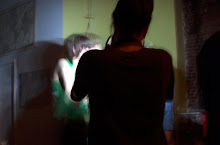 AUGUR
AUGURIn ancient Rome these were a special caste of priests who interpreted natural phenomena which was believed to represent messages sent from the gods. The natural phenomena, or signs, included flights if birds, patterns in clouds and smoke, and markings on livers of sacrificial animals. It is interesting to note the liver rather than the heart was considered the body's central organ. The position as augur was a very central one, as the Romans rarely did anything important without the consensus of the gods, as expressed in the auspices.
The ceremony of an augur "taking the auspices" was done before every public ceremony after Attius Navius impressed King Tarquinius. According to Livy, Tarquinius was involved in a Sabine war at the time. He thought he needed more cavalry to win, but he recalled a story about Romulus using an augur, so he thought he should do the same. He called on Attius, and asked him if he should add more cavalry. The answer was no, which upset Tarquinius. He was not convinced in the art of augury, so he asked Attius to do another, and to see if what he was thinking at the time was possible. The signs came back positive. Tarquinius thought he had Attius trapped, because what he had been thinking was that Attius should cut a whetstone in half with a razor. Attius did this immediately, and Tarquinius became a believer.
HARUSPEXA religious official in ancient Rome who interpreted omens by inspecting the entrails of sacrificial animals.
The haruspices in ancient Rome were part of a group of seers or auguries whose official function was not so much to foretell the future as to work out whether the gods approved of some proposed course of political or military action. Nothing of importance was undertaken until the auguries had been consulted. Many omens were actively watched for, such as the flight of birds, the pecking behaviour of sacred chickens, or the sound of thunder. The Romans borrowed these techniques from their predecessors, the Etruscans.
Edward Gibbon, in The Decline and Fall of the Roman Empire, was disdainful of what he saw as the barbarous rites of the period: “Amidst the sacred but licentious crowd of priests, of inferior ministers, and of female dancers, who were dedicated to the service of the temple, it was the business of the emperor to bring the wood, to blow the fire, to handle the knife, to slaughter the victim, and, thrusting his bloody hands into the bowels of the expiring animal, to draw forth the heart or liver, and to read, with the consummate skill of an haruspex, imaginary signs of future events. The wisest of the Pagans censured this extravagant superstition, which affected to despise the restraints of prudence and decency.”
The second part of the word is clearly from Latin specere, to look at, but the first part is more mysterious; it may be related to Sanskrit hir, an artery. The technique is called haruspicy. Another word for it is extispicy, a word whose the first element we do know the origin of—it’s from Latin exta, entrails.
The asfertur shall begin the ritual with observation of the birds--a green woodpecker and a crow on the right, a woodpecker and a magpie on the left. He who shall go to observe the calling birds shall, seated, command the asfertur from the hut as follows: 'Demand that I observe a green woodpecker on the right, a crow on the right, a woodpecker on the left, a magpie on the left, birds on the left, sacred calling birds on the left.' The asfertur shall make the demand in these words: 'There observe a green woodpecker on the right, a crow on the right, a woodpecker on the left, a magpie on the left, birds on the left, sacred birds calling on the left, for me, for the city of Iguvium, for the station which has been established.' While the one who goes to observe the calling birds is seated in the chair, no one is to make a sound and no one else is to sit in the way until he who has gone to observe the calling birds has returned. If there is a noise or if anyone else sits in the way, he shall make the ceremony null and void.
